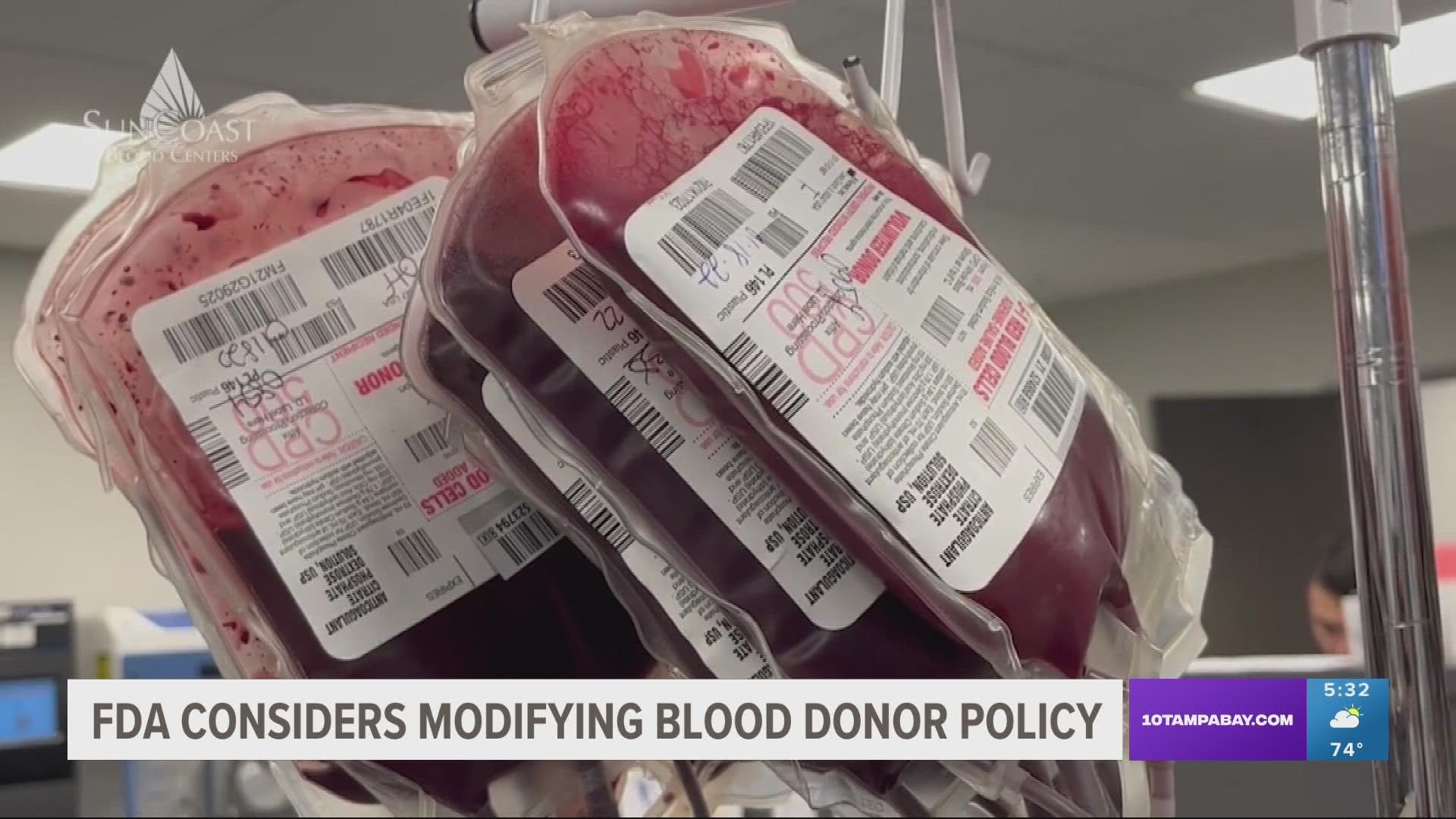ST. PETERSBURG, Fla. — The Food and Drug Administration is taking steps that may allow gay and bisexual men to donate blood.
This group of people has been largely turned away from donating blood following a ban in the 1980s given HIV fears. The FDA relaxed the rules in 2015 — moving away from a lifetime ban to one that allowed gay and bisexual men to donate if they have not had sexual contact with other men in the past year.
Given blood shortages, the period of time was reduced to three months.
The FDA funded a study, Assessing Donor Variability and New Concepts in Eligibility (ADVANCE), which recently concluded. It considers a more individual approach to determine risk.
"Together, the LGBTQ+ community, blood centers and the FDA are collaborating to determine if a blood donor history questionnaire based on individual risk would be an acceptable alternative to a time-based deferral in reducing the risk of HIV among gay and bisexual men who present to donate blood," the ADVANCE web page reads. "This could potentially lead to changes to the FDA’s current three-month deferral policy for men who have sex with men or MSM."
This means instead of having to wait to donate blood, gay and bisexual men could be given a questionnaire instead.
Current policy requires gay and bisexual men “defer for 3 months from the most recent sexual contact, a man who has had sex with another man during the past 3 months,” according to the FDA. All U.S. blood collection organizations must follow this federal requirement.
There is no deferral for women who have sex with women or people identifying as transgender.
In a statement from the FDA, the administration is currently reviewing the data to learn "if a donor questionnaire based on individual risk assessment would be as effective as time-based deferrals in reducing the risk of HIV."
The FDA does not have a timeline for when analysis will be complete and blood donor restrictions modified. As the data is under review, the FDA "will likely support a policy transition to individual risk-based donor screening questions for reducing the risk of HIV transmission," its news release stated.
OneBlood, American Red Cross and Vitalent account for about 60% of the nation's blood supply.
"Any time that there is a change made, where it allows additional donors into the donor pool, that's a good thing," OneBlood spokesperson Susan Forbes said. "You know, we want as many people who are able to donate to be able to donate, it's important to have that ready blood supply at all times. And if there is changes that are made by FDA, that will enable additional people into the donor pool, then that's a good thing."
Suncoast Blood has locations across southwest Florida.
"The current need is — it's insatiable," said Robert Harper, its chief compliance officer. He added it's hard to gauge how much of an impact a policy change could have when now, many gay or bisexual men don't attempt to donate blood.
"We're not seeing a large deferral in that I think that they're just not coming in to donate because, you know, they don't want to be discouraged or, or they know that that deferral is in place," Harper said.
There is always a need for blood, with many donation sites offering free gifts or gift cards as an incentive to donate.
"The need for blood never stops, you know, less than 10% of the population actually donates blood when upwards of 40% can but don't," Forbes said. "So we encourage people who are eligible to donate to always step forward, and do so."
Malique Rankin is a general assignment reporter with 10 Tampa Bay. You can email her story ideas at mrankin@10tampabay.com and follow her Facebook, Twitter, and Instagram pages.

